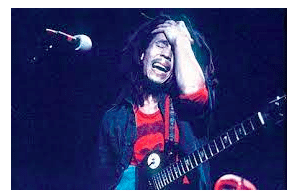Jamaican artistes and musicians have been forced to endure a huge gap in their ability to earn certain royalties, thanks to an extended delay by the Government in putting the legal provisions in place to make it possible.
The music industry in Jamaica, and the world over, involves several layers of practitioners who actively and — or passively — contribute to the music we all enjoy daily, whether in live format or via the recorded versions. Several categories of these contributors are given legal protection within the system of music rights internationally, for their role and involvement in the creation of music. Music performers is one such category and is includes vocalists (artistes) and musicians (players of instruments).
There is, however, a set of provisions to be made in the Jamaican copyright laws — which the Government is obligated to do, having signed on to International Copyright Treaties designed to protect performers. Those legal provisions, however, have been stuck at the Attorney General’s Chambers since 2016.
Artistes and musicians are part of a wider group of contributors to the music creation process who are recognised for their roles and given legal protection over their musical contributions. Other recognised categories of contributors who are entitled to legal protection and different forms of royalties are songwriters, composers, and record producers. The overall scope and strength of rights of performers have however historically lagged behind those of other contributors and rights holders. It is for this reason that, at the international level, steps were taken, over the last several decades, to create a more balanced set of rights in favour of performers.
Despite these active steps — including adoption into the copyright laws of most countries to increase the legal protection given to performers for better control over their rights in both live and recorded music — Jamaica has failed to take similar steps to protect its own artistes and musicians.
In legal terms, some would say the failure has been egregious, as that failure has deprived tens of thousands of Jamaican performers from being able to earn airplay and public performance royalties in Jamaica.
It has also resulted in Jamaica Music Society (JAMMS), which is the Jamaican performance rights organisation, not being able to enter into reciprocal arrangements with similar bodies in some major music markets such as the USA. The result is that millions of dollars due Jamaican performers in some foreign markets cannot be collected by JAMMS on behalf of its Jamaican performer members.
Performance rights organisations globally typically operate on a reciprocal basis. This means, in collecting performance royalties from the USA for its performer members, JAMMS would be required to also collect royalties in Jamaica and pass on to its USA counterpart for its members’ music that is played in Jamaica. If Jamaican copyright law does not allow performers to earn performance royalties in Jamaica, then JAMMS cannot carry out its licensing and royalty collections in Jamaica on behalf of performers. As a result, the inflow of millions of dollars from markets such as the USA is jeopardised since a real exchange cannot take place. This is a huge gap in the potential earnings .
Source: https://www.jamaicaobserver.com/entertainment/lawmakers-kick-jamaican-musicians-to-the-curb_236880




